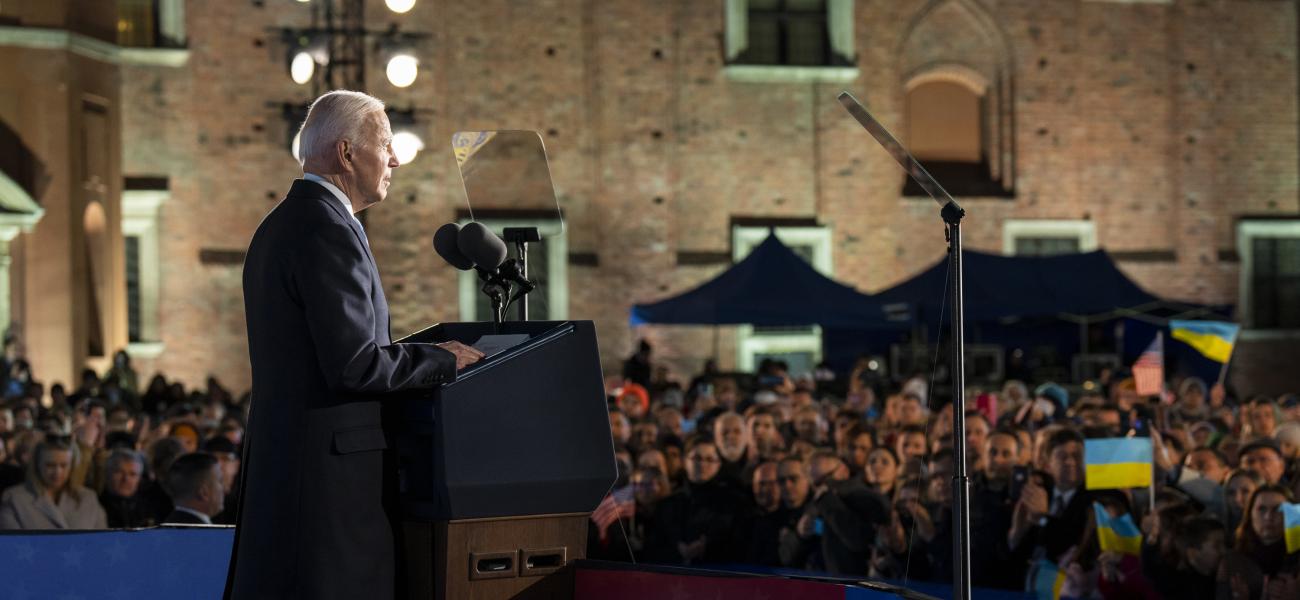
Redefining Success in Ukraine.
This is a summary of an article originally published by Foreign Affairs under the title "Redefining Success in Ukraine."
The authors write:
- Ukraine’s counteroffensive appears to have stalled. ... These circumstances necessitate a comprehensive reappraisal of the current strategy that Ukraine and its partners are pursuing. Such a reassessment reveals an uncomfortable truth: namely, that Ukraine and the West are on an unsustainable trajectory, one characterized by a glaring mismatch between ends and the available means. Kyiv’s war aims—the expulsion of Russian forces from Ukrainian land and the full restoration of its territorial integrity, including Crimea—remain legally and politically unassailable. But strategically they are out of reach, certainly for the near future and quite possibly beyond.
- The time has come for Washington to lead efforts to forge a new policy that sets attainable goals and brings means and ends into alignment. The United States should begin consultations with Ukraine and its European partners on a strategy centered on Ukraine’s readiness to negotiate a cease-fire with Russia and to simultaneously switch its military emphasis from offense to defense.
- Russia may well reject Ukraine’s offer of a cease-fire. But even if the Kremlin proves intransigent, Ukraine’s shift from offense to defense would limit the continuing loss of its soldiers, enable it to direct more resources to long-term defense and reconstruction, and shore up Western support by demonstrating that Kyiv has a workable strategy aimed at attainable goals.
- Whether or not a cease-fire takes hold, Ukraine needs to pivot to a defensive strategy.
- And should clear evidence emerge that Russia’s military capability or will is faltering, Ukraine would retain the option of returning to a more offensive-oriented strategy.
- Over the longer term, this strategic pivot would make it clear to Russia that it cannot simply hope to outlast Ukraine and the West’s willingness to support it. That realization may eventually convince Moscow to move from the battlefield to the negotiating table—a move that would be to Ukraine’s ultimate advantage, since diplomacy offers the most realistic path for ending not only the war but also, over the long term, Russia’s occupation of Ukrainian territory.
- The United States and select NATO members … should commit not just to long-term economic and military help but also to guaranteeing Ukraine’s independence. This undertaking would be modeled on Article 4 of the NATO Treaty, which provides for immediate consultations whenever “the territorial integrity, political independence or security” of a member is threatened.
Read the full article on Foreign Affairs website.
Richard Haass
Richard Haass is President Emeritus of the Council on Foreign Relations and a senior counselor at Centerview Partners. He is the author of The Bill of Obligations: The Ten Habits of Good Citizens.
Charles Kupchan
Charles Kupchan is a Senior Fellow at the Council on Foreign Relations and Professor of International Affairs at Georgetown University, served as Senior Director for European Affairs on the National Security Council during the Obama administration. He is the author of Isolationism: A History of America’s Efforts to Shield Itself From the World.
The opinions expressed herein are solely those of the author. Photo by the White House shared under a United States government work licence.

